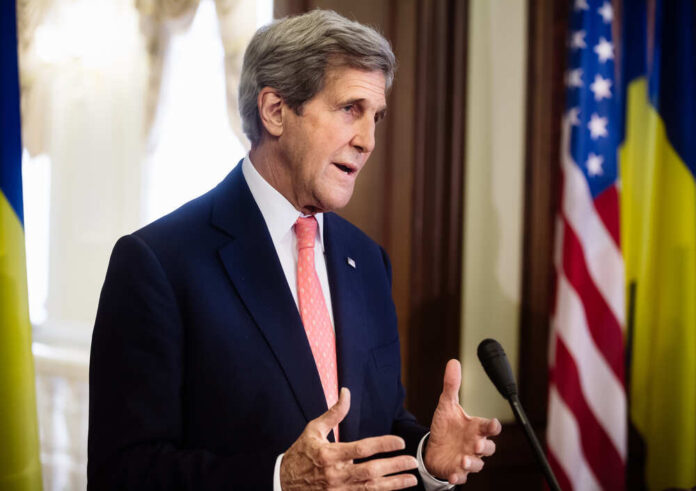
In a recent interview, Special Presidential Envoy for Climate John Kerry voiced an unorthodox concern about the ongoing war in Ukraine. Instead of focusing on tangible threats to global stability and peace, Kerry worried about how the conflict contributes to climate change.
According to Kerry, the bombing campaigns and destructive activities involved in the war are causing “an enormous release of greenhouse gases,” thus exacerbating the ongoing climate crisis. However, the question remains, is this the right time and context to underscore climate issues?
Human lives are expendable to Socialists who want to enable global wealth transfers https://t.co/p6iIS8Dau7
— Fusilli Spock (@awstar11) July 10, 2023
Kerry’s remarks have drawn widespread criticism and mockery online. From citizens concerned with the loss of life and the humanitarian crisis to political figures concerned with global stability, many see Kerry’s focus on the climate impacts of war as somewhat detached from the immediate issues at hand. Republican presidential candidate Nikki Haley, in response to Kerry’s climate comment, quipped that the “end of the Biden (Harris) administration can’t come fast enough.”
While the implications of climate change cannot be understated, the dire urgency of the escalating tensions in Eastern Europe demands more than a discussion about greenhouse gases. The need of the hour is to seek peace and to curtail the possible emergence of a full-blown armed and potentially nuclear conflict involving the U.S. Such a conflict would not just spell catastrophe for climate change but potentially spell the end of civilization as we know it.
John Kerry claims war in Ukraine is 'exacerbating the problem' of climate change https://t.co/zt9bCIQQj9
— Washington Examiner (@dcexaminer) July 11, 2023
The United States has contributed over $100 billion in aid to Ukraine, providing significant military support, including M1 Abrams main battle tanks and MIM-104 Patriot surface-to-air missiles.
While examining climate change is essential, one has to question the appropriateness of discussing such matters when the conversation should be centered around preventing the escalation of the war and mitigating its humanitarian toll.
Kerry’s comments further illustrate a consistent pattern among establishment neo-conservative and progressive war hawks who seem more focused on pushing their political agendas rather than seeking peace. It’s a shift that favors climate change narratives over efforts to establish international cooperation and peace.
This sentiment is also evident in the Biden administration’s previous lauding of China’s climate policy, despite China approving 168 new coal-powered plants in 2022. This endorsement seems hypocritical when that country’s coal consumption continues to be a significant contributor to global greenhouse gas emissions.
While America should be aware of the climate implications of all human activities, including war, it is vitally important to prioritize efforts in finding peace. Once the threshold of a nuclear conflict is crossed, there’s no turning back. It’s high time our leaders realize this and steer their focus toward peace and stability.





























